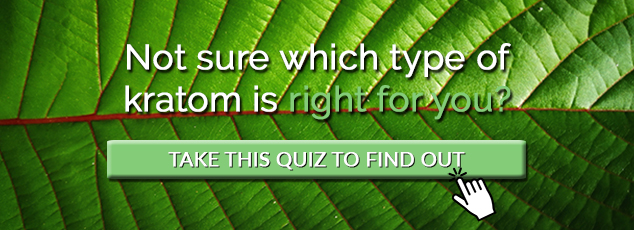Kratom overdose is a topic that can frequently see in the news and on a variety of medical websites.
However, it’s not a secret that news articles on kratom are frequently misleading and biased. As a matter of fact, a review of approximately 2500 kratom news stories concluded that 92% of them are negatively skewed. Therefore, it’s not a surprise that you may be wondering if you can trust kratom overdose news and reports.
It’s our mission to provide unbiased and objective information about kratom. Not to skew anyone’s opinion but to provide information so that kratom users can make the best possible choices.
Let’s take a look at the kratom overdose situation so that we can find out whether you can overdose on kratom and if so, how dangerous it can be?
What Is Kratom?
Mitragyna speciosa or kratom is a tree that is native to Southeast Asia. Kratom powder comes from kratom leaf tissue, and there are different varieties of it.
Kratom leaves can have veins and stems in three different colors – red, green, or white (which actually looks more like pale green). Depending on the color of the veins and stems, kratom powder will have different alkaloid content and different properties.
The Mitragyna speciosa tree is in the Rubiaceae flowering plant family. The coffee plant is perhaps the most well-known plant in the family. Therefore, kratom and coffee share some of their qualities.
The Chemical Makeup of Kratom
The properties of kratom are due to its alkaloids. While studies on kratom are still minimal, we know that there are at least 40 active components in kratom 25 of which are alkaloids.
The two primary kratom alkaloids are mitragynine and 7-hydrohymitragynine. Mitragynine is the more abundant one while 7-hydroxymitragynine comes in tiny quantities, yet is 10-20 times more potent than morphine.
You Can Overdose on More than Just Drugs
The majority of sources that warn readers about kratom overdose refer to kratom as a drug.
“Overdose,” in general, is a negative word and it most frequently associates with drugs. In fact, the primary dictionary definition for “overdose” is “an excessive and dangerous dose of a drug,” while, in actuality, you can overdose on everyday foods, as well. Some of them are:
- Carrots – eating too many carrots can lead to carotenemia. It’s a condition when there is excess beta-carotene in your body, and your skin turns orange. It’s a harmless condition which can often happen to babies after eating too much pureed food.
- Bananas – bananas are high in potassium, and too much of it can lead to hyperkalemia. That is excessively high potassium content in the blood. It can cause muscle weakness, fatigue, nausea, abnormal heart rhythm, and even paralysis. However, you would need to eat about 400 bananas for them to kill you, which is virtually impossible.
- Potatoes –potatoes contain natural pesticide solanine that wards off snails. Overdosing it can lead to cardiac arrest, coma, death. Though, you’d need to eat an average of a pound of green potatoes for that to happen.
- Chocolate – too much of your favorite dessert food can lead to theobromine poisoning, excess amount of a bitter alkaloid also present in tea and acai berries. Consequences can be fatal, though you would need to eat over 80 chocolate bars for that to happen. Humans can quickly excrete theobromine, so, severe poisoning is unlikely to happen.
- Coffee – taken in moderation, coffee can have beneficial effects. However, it has a lethal dose – 10g of caffeine. To achieve that, you’d need to drink at least 30 highly caffeinated energy drinks or about 80-90 cups of coffee.
And…
You Can Even Overdose on Water
While we are encouraged to drink more water, too much of it can be lethal. Drinking more than a liter within an hour dilutes the sodium content in the blood and can cause your cells to swell. This is a condition known as hyponatremia. Rapid swelling of the brain can cause coma or death.
While possible, all of the above are extremely rare and unlikely to happen to an average human. In most cases, your body will prevent that from happening. However, they prove that you can overdose on products and substances that are deemed not only harmless but also beneficial.

Can You Overdose on Kratom?
Technically – yes, it’s possible; however, it’s highly unlikely to happen. Scientists have determined the lethal dose of mitragynine. It is 60 g of pure mitragynine. They have not found one for 7-hydroxymitragynine.
However, kratom does not only consist of mitragynine, and you’d need a massive amount for kratom overdose to kill you. This is unlikely to happen as you wouldn’t be physically able to ingest that much kratom powder in either pure or tea form.
Kratom also has extremely low respiratory depression; therefore, it doesn’t have the same lethal; risk as opioids or opioid-based drugs.
You indeed can take a dose of kratom that is too high. However, you’re going to experience kratom side effects and feel nauseous and weak until your body flushes most of the alkaloids out of your system.
If It’s not Kratom Overdose, then What Is It?
Even the warning reports by the CDC and the FDA state that most of the fatal cases had other substances present in the blood. In instances where kratom was the only substance, the authorities didn’t rule out other substances. Therefore, it is unfair to assume that kratom was the cause.
Moreover, CDC reports on kratom complaints are based on anecdotal data rather than actual scientific evidence.
This indicates that kratom overdone isn’t the real issue. Instead, it’s the lack of reliable information and regulations. Luckily some states have moved towards making the kratom market safer for consumers by passing the Kratom Consumer Protection Act. Hopefully, this leads to less misinformation on kratom in the future.
What are your thoughts on kratom overdose? Is it an issue, or is it exaggerated?


Leave a Reply